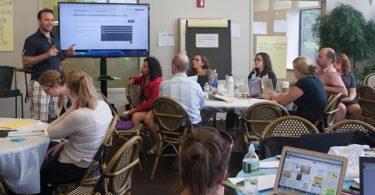In a democracy, individual rights and freedoms are protected, and citizens can express their opinions and participate in the political process. The media and other sources of information are free to operate and report on the government. The rule of law ensures government officials are held accountable for their actions. Read on to find out more.
What is Democracy?
Democracy is a form of government in which the people ultimately hold power. In a democratic system, citizens can typically participate in decision-making through free and fair elections, representative institutions, and the rule of law.
Several fundamental principles underpin democracy, including political equality, individual rights, and the rule of law. Political equality means all citizens have an equal say in decision-making, regardless of their social status or wealth. Individual rights include fundamental freedoms such as freedom of speech, religion, and assembly and protections against arbitrary detention or punishment. The rule of law ensures that government officials are held accountable for their actions and that the laws apply equally to all citizens.
Democracy can take many forms, from direct democracy, in which citizens vote on specific issues directly, to representative democracy, in which citizens elect representatives to make decisions on their behalf. While democratic systems can be complex and varied, they all share the core principle of allowing citizens to have a say in how they are governed.
What is Dictatorship?
The dictator or ruling party controls a dictatorship. In a dictatorship, the government runs the economy, media, and legal system without citizen input. In a dictatorship, the ruler or ruling party often takes and keeps power through force or coercion. The government may use violence or the threat of violence to repress dissent and maintain control.
Dictatorships range from military juntas to authoritarian regimes. They can occur in developed and developing nations during political or economic instability. In a dictatorship, citizens rarely participate in decision-making and have few rights and freedoms. Citizens may have trouble getting accurate political information because the government controls the media and other sources. Dictatorship violates democracy and the rule of law and can lead to human rights abuses.
Difference Between Democracy and Dictatorship
The main difference between democracy and dictatorship is that democracy is a system of government in which power is ultimately held by the people. In contrast, a dictatorship is a system of government in which power is controlled by a single individual or a small group of individuals. In a democracy, citizens have the right to participate in decision-making through free and fair elections, representative institutions, and the rule of law. Individual rights and freedoms, such as freedom of speech, religion, and assembly, are also protected.
In contrast, dictatorship often suppresses individual rights and freedoms, with the government exercising complete control over all aspects of society. Rulers in a dictatorship often gain and maintain power through force or coercion rather than through democratic processes. The media and other sources of information may be tightly controlled, making it difficult for citizens to access accurate information about their country’s political situation. Overall, democracy is characterized by political equality, individual rights, and the rule of law, while dictatorship is marked by the concentration of power in the hands of a few and the suppression of individual rights and freedoms.






